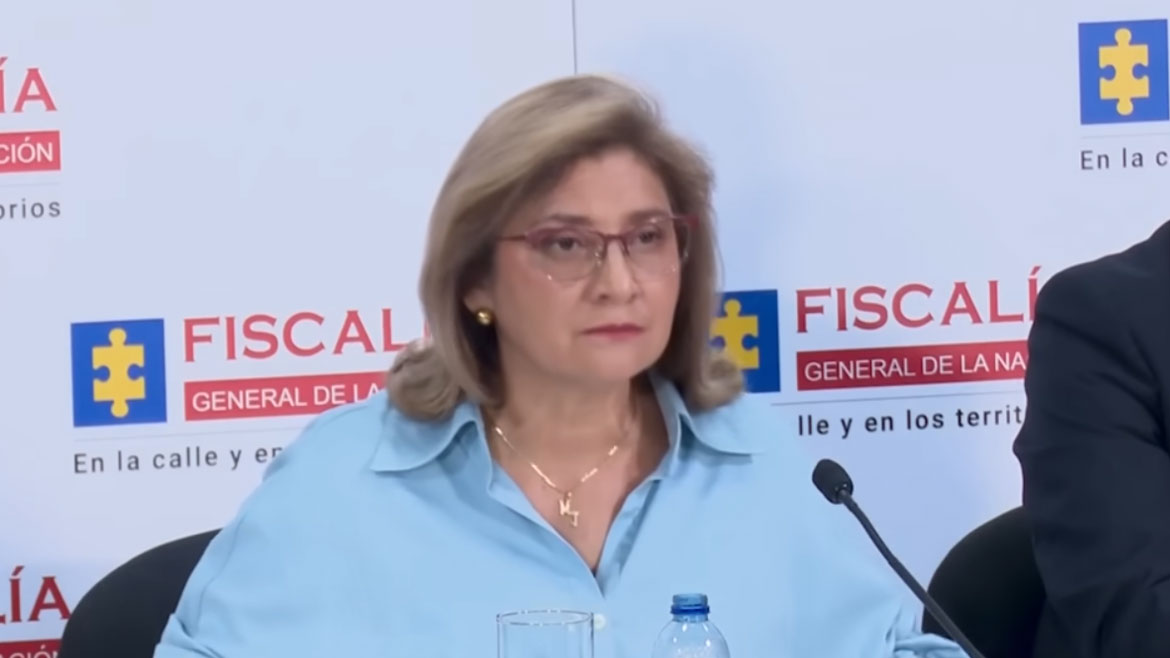Colombia’s acting chief prosecutor Martha Mancera signed off on a bulk of possibly illegal resolutions that severely reduce the powers of her successor.
The resolutions were made public while the Supreme Court is trying to pick a successor of former Prosecutor General Francisco Barbosa, whose term ended on February 8.
Mancera signed off on the reforms on February 26, three days after Senator Maria Jose Pizarro pressed criminal charges against the acting chief prosecutor before Congress’s Accusations Committee.
Evidence suggests that the acting chief prosecutor has been trying to cover up alleged ties between her friends in the Prosecutor General’s Office and drug traffickers.
The reforms
One of the biggest reforms is that of resolution 81, which transfer the power to coordinate the prosecution’s Technical Investigations Unit (CTI) to the deputy chief prosecutor, “emptying the competencies and powers of the next prosecutor who will be appointed by the Supreme Court,” former Prosecutor General Eduardo Montealagre told news website Raya.
Through this reform, the deputy chief prosecutor reportedly gained absolute control over investigators assigned to the CTI, police intelligence agencies DIJIN and SIJIN, the Inspector General’s Office, the Comptroller General’s Office, Migration, prison authority INPEC, and district prosecutions.
According to Montealegre, this resolution is “openly illegal” because it modifies Colombia’s Criminal Procedure Code, which explicitly grants these powers to the prosecutor general.
Another major reform is that of resolution 87, which allows the deputy chief prosecutor to create, modify and disband intelligence units dedicated to the “fight against criminal phenomena and/or situations that have been prioritized.”
Resolution 86 created a so-called “Information Gathering Center,” to support the Investigations and Analysis Support Directorate, which — as the name implies — is in itself a support unit.
“These structures created by Prosecutor Mancera, apart from having bombastic names, contribute nothing to the efficient and effective functioning of the Prosecutor General’s Office, the former district prosecutor of Valle del Cauca, Elmer Montaña, told Raya.
One of the hypotheses about the creation of new directorates is that somehow Martha Mancera is making plans to remain in the entity for a long time… The other hypothesis is that the acting prosecutor is taking advantage of her term either to create more bureaucracy or to guarantee that there will be close associates to her when the new prosecutor takes office. In short, to create a parallel Prosecutor’s Office with individual loyalties that will make her successor’s job more difficult.
Fundación Paz y Reconciliación
Montaña wondered how Mancera was able to push through such an enormous reorganization in such a short period of time.
Apparently, this seems to be the result of a small group of prosecutors led by Mancera, I say apparently, because it is impossible that in such a short time, a small group of people would have designed a reform of such magnitude. It is very likely that it came from outside the Prosecutor’s Office and the author or authors have an interest in undermining the power of the next prosecutor, leaving her under the control of parallel structures, composed of officials that Mancera will surely leave appointed and in office.


